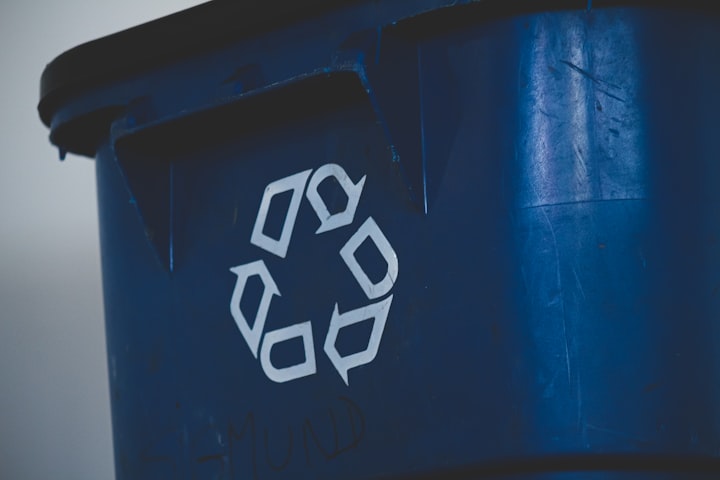The war on pollution is a never-ending battle. Every year, new products are created that claim to be more environmentally friendly than the last. We are constantly bombarded with messages telling us to “reduce, reuse, recycle” in order to save the planet. But what if I told you that recycling is a lie?
The recycling industry is a multi-billion-dollar industry that has been built on the backs of well-meaning consumers. We have been led to believe that by recycling our plastic water bottles and aluminum cans, we are doing our part to save the planet. But the truth is, recycling is actually very inefficient and it’s a lot cheaper and easier for companies to just create new products from scratch.
So why do we keep doing it? Because we have been duped into thinking that it’s the right thing to do. But it’s time to wake up and smell the roses – recycling is a farce and it’s time to put an end to it.
- The supposed benefits of recycling are overstated
- Recycling is actually more harmful to the environment than some other methods of waste disposal
- The recycling industry is actually abusiness, not a public service
- Many recyclable materials are actually not recycled
- The truth about recycling is that it's not as good for the environment as we've been led to believe
- The supposed benefits of recycling are overstated
The supposed benefits of recycling are often overstated. While recycling can certainly be beneficial in some ways, the truth is that it often isn’t as effective as people think.
One of the biggest misconceptions about recycling is that it always saves energy. However, this isn’t always the case. In fact, recycling can sometimes use more energy than simply creating new products from scratch.
Another issue with recycling is that it often requires sorting. This means that items need to be separated into different categories before they can be recycled. This can be time-consuming and inefficient.
Finally, even if recycling is done properly, there’s no guarantee that the recycled materials will actually be used. Often, recycled materials end up in landfill because they’re not suitable for use. This means that all the effort of recycling has been for nothing.
While recycling can be beneficial in some ways, it’s often not as effective as people think. The truth is that recycling isn’t always the best option – sometimes, it’s actually more harmful than helpful.
- Recycling is actually more harmful to the environment than some other methods of waste disposal
You might have been told that recycling is the best way to help the environment – but that’s actually not true. In fact, recycling can be more harmful to the environment than some other methods of waste disposal.
When you recycle, the materials you recycle have to be sorted, cleaned, and processed before they can be turned into new products. This uses a lot of energy and water, which can damage the environment.
Plus, recycling often uses chemicals and other harmful substances that can pollute the air and water. And, while it’s true that recycling can reduce the amount of waste in landfills, it can also create mountains of waste if not done properly.
So, before you put that can in the recycle bin, think about whether recycling is really the best option for the environment.
- The recycling industry is actually abusiness, not a public service
The recycling industry is actually just a business that makes money off of recycling. They don’t actually care about the environment or helping people. They just want to make a profit. The recycling industry is full of fraud and deception. They lie to the public about what can be recycled and how much it will help the environment.
- Many recyclable materials are actually not recycled
In recent years, recycling has become increasingly popular as people strive to be more environmentally conscious. However, many recyclable materials are actually not recycled. For example, only about 25% of plastic is recycled, and less than 10% of glass is recycled. Even though recycling is promoted as being good for the environment, the truth is that it is actually a very inefficient process.
The recycling process often uses more energy than simply creating new products from scratch. Recycling facilities often emit harmful pollutants into the air, and the transportation of recycling materials can create significant amounts of pollution as well. In addition, recycling often relies on manual labor, which can be dangerous and underpaid.
So why do we continue to recycle? The answer is simple: because we have been lied to. Recycling is not actually good for the environment, and it is time for the truth to be revealed.
- The truth about recycling is that it's not as good for the environment as we've been led to believe
The popular consensus is that recycling is good for the environment. And it is, to an extent. However, the truth about recycling is that it's not as good for the environment as we've been led to believe.
The process of recycling itself uses energy and resources, which negates some of the environmental benefits. In addition, many recycling facilities don't actually recycle the materials they collect. Instead, they simplysort them and then sell them to other countries where they often end up in landfill.
So, while recycling is still better than not recycling, it's not the panacea for our environmental problems that we've been led to believe.
In conclusion, the author argues that recycling is a lie. The author provides several examples of how recycling is not effective and not worth the money. The author's final thoughts are that people should be more careful about what they believe and that they should think for themselves.
About the Creator
John Nogueira
I've had a passion for writing since I was very young and I've been improving my writing and creative skills over time. I write articles and compositions about music, literature, poetry, politics, art and philosophy.







Comments
There are no comments for this story
Be the first to respond and start the conversation.